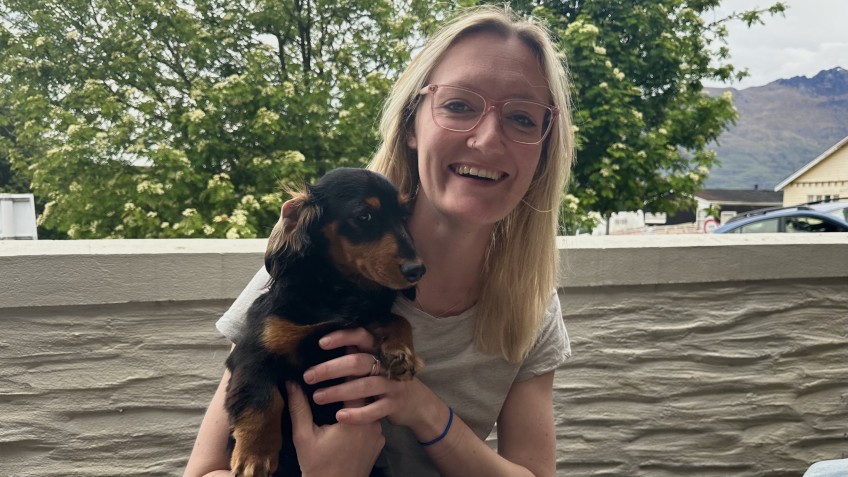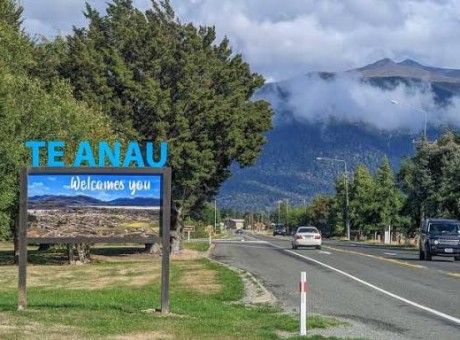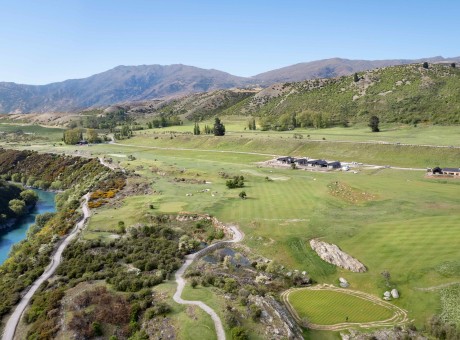Housing advocate invites more voices to respond to QLDC pushback

When Queenstown Housing Initiative (QHI) co-founder Hannah Sullivan puts forward to council key housing issues, and potential solutions, she's often met with reasons why her ideas wouldn't work or the community wouldn't support them.
She notes there's a lack of data or community input in those claims, so she's asking residents to fill out a survey, to "see if the community really feels that way" on certain housing issues as well as to garner community-led solutions.
Since August, she's been advocating for a fair solution to the $400 freedom camping fines imposed on longer-term locals living in vehicles, knowing of multiple workers in the district on the receiving end of them.
Overall, Ms Sullivan has been asking for the council to do more about the housing crisis since March, when she helped organise a protest, and jokes about the number of times she's been quoted in various media asking for "immediate solutions" in the past seven months.
One of the survey questions is, "Would you be OPPOSED to allowing 'Freedom camping' for people facing homelessness in council-owned car parks etc to ensure people sleeping in vehicles are safe?".
She recently pushed for this in a meeting with the Queenstown Lakes District Council, suggesting to staff they consider opening up overnight council carparks, such as at the Queenstown Events Centre, as freedom camping fine-free zones and a place where people can be safe and have access to rubbish disposal and a toilet.
She says the QLDC responded that the community wouldn't support it, and it wasn't a good look for Queenstown to have people sleeping in their cars in public - although Ms Sullivan notes the event centre isn't directly in the public eye.
She wants to know if this is actually how the community feels, and is continuing to push for "safe" solutions for Queenstown workers sleeping in their vehicles.
Ms Sullivan says it would be important to establish who is looking for permanent housing and working in the district, and who is a tourist.
Crux interviewed a Queenstown worker who was fined in July after sleeping in their vehicle out of necessity, and was still ordered to pay after contesting their fine and showing employment in the district.
He also shared his safety fears, saying he worries about sleeping in his vehicle - Ms Sullivan too is worried about workers in their vehicles, often parking up in dark spots to avoid council contractors.
There are concerns dishing out fines in the district to people who can't find somewhere else to live during an accommodation crisis goes against the intent of new, tighter freedom camping rules introduced across the country earlier this year.
When they came into force, the Ministry of Business, Innovation and Employment (MBIE) stated people sleeping in their vehicles out of necessity would not be the target of them.
However, Crux knows of more than ten working houseless people who have unsuccessfully attempted to contest fines.
MBIE is not taking responsibility for guiding local councils around any exemption for those experiencing homelessness, and who might qualify.
Crux put the following questions to the government department, which went unanswered in their responses.
- What recommendations does MBIE have for local councils to ensure that homeless people aren’t penalised, i.e. showing proof of local employment, evidence of applying for rentals, etc?
- What is MBIE’s reaction to the fact homeless people are being penalised when the intent of the law was that this demographic would not be targeted?
MBIE tourism manager Heather Kirkham says MBIE guidance provided to local authorities helps authorities understand if someone is eligible for the exemption.
This involves encouraging enforcement officers to apply discretion and not to penalise people experiencing homelessness and instead direct them to appropriate social service agencies as seen on MBIE's website after the June 6 law change.
"MBIE does not get involved with individual cases. Local authorities understand their communities and are best placed to enforce freedom camping rules to meet the intent of the law changes.
"In this instance, questions should be directed to the local council involved."
The council's current response is to direct people contesting fines to social service providers in town to write a letter of support - without notifying providers of this.
Ms Sullivan has also started monthly meetings with council officers Marie Day (community partnerships manager), Emily Irwin (strategic planner – housing) and Amy Galloway (responsible camping programme manager).
She wants those with housing worries to know that they can come to her anonymously, and she can advocate for them and their particular worries in these meetings.
"I am trying to bridge the gap between the council and the community...if you know that you're in a position that you shouldn’t be in, tell me. I can bring these things up."
When asked why she continues to keep asking council for housing solutions, "hope" was her reply.
"Hope is what's powering me through, I didn't think I had a voice when I first started. But I don't want to let anxiety stop them from making a difference."
She says often when she goes out, people stop her on the street, and ask if she's the "housing girl", often met with positive encouragement, and questions with how they can help.
Her response to those people today is to fill out the survey.
Crux approached the QLDC several days ago for comment on the issuing of freedom camping fines to houseless locals, but they did not respond by the time of publication.
Contact Hannah Sullivan from the Queenstown Housing Initiative: [email protected]
Main image: Hannah Sullivan from the Queenstown Housing Initiative.

























